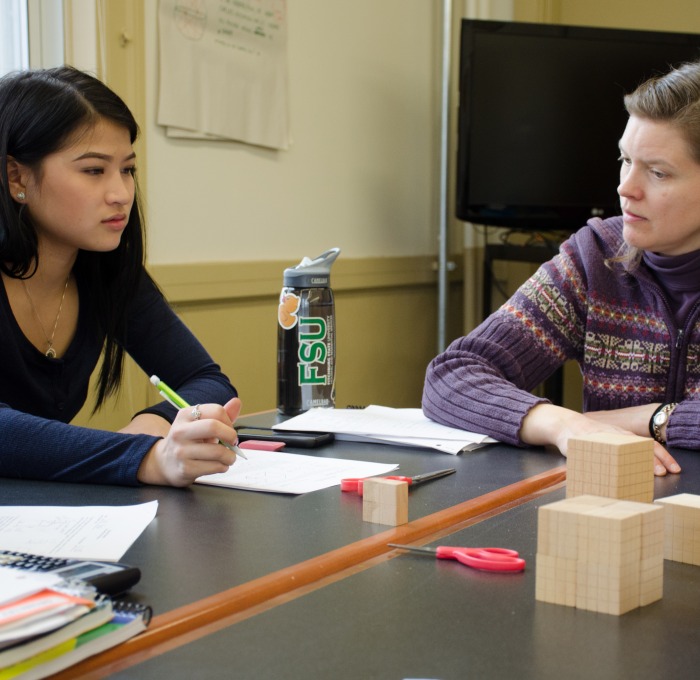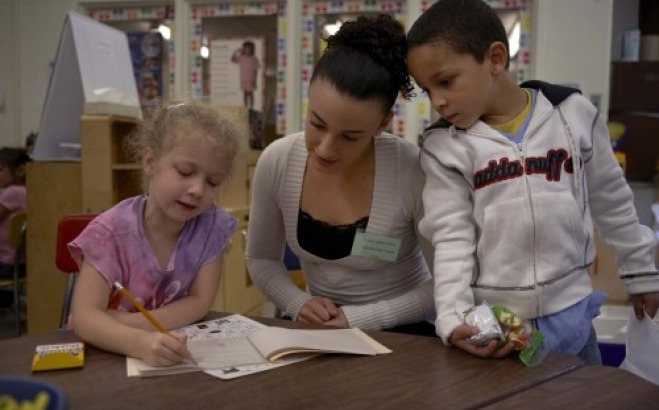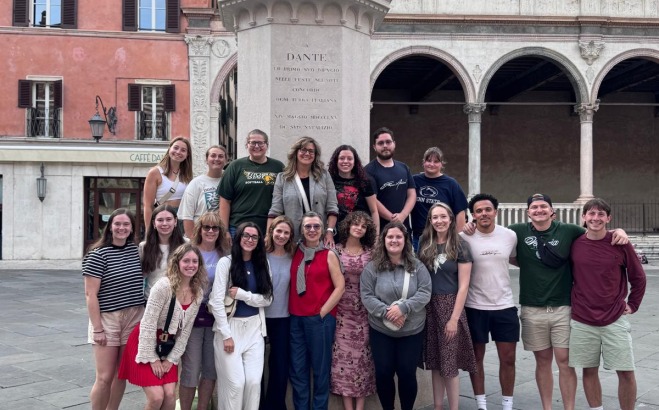
In Short
Middle School Education Mathematics (5-8) Initial Teacher Licensure Concentration combines core courses in mathematics, 5-12 education, and licensure specific coursework with multiple field-based experiences in middle school settings.
- Develop effective thinking and communication skills
- Learn to link applications and theory
- Learn to use technological tools
- Develop mathematical independence and experience open-ended inquiry
Program Overview
Students within the Mathematics Middle Level (5-8) Education concentration may pursue initial teacher licensure as a middle school mathematics (grades 5-8) teacher by completing a Mathematics major, Middle and Secondary (5-12) Education minor and a series of licensure specific courses. In this concentration students will learn the theory, research, and pedagogy necessary to teach middle school Mathematics through Middle and Secondary Education (5-12) minor and licensure specific courses, and develop mathematics content knowledge through the Mathematics major.
Throughout the program of study, students will complete several field-based experiences in middle school settings, which will be supervised by university supervising practitioners and/or university faculty supervisors. These field-based experiences will provide students with opportunities to observe and participate in middle school instruction that incorporates what students are learning in their education pedagogy classes as well as mathematics content that they are learning in their mathematics courses. Students will complete a formal practicum for their Middle School Education major as required for initial teacher licensure.
Experiential Opportunities
Practicum
Study Abroad
Curriculum and Other Information
- Middle School Education Mathematics (5-8) Initial Teacher Licensure Concentration, Mathematics, BSE - Program information from the University Catalog.
- Four-Year Plan of Study - Required and elective courses for program completion.
Develop effective thinking and communication skills
- Present information in a clear, precise and organized manner both verbally and in writing.
- Use and compare analytical, visual, and numerical perspectives in exploring mathematics.
- Recognize and make mathematically rigorous arguments.
- Approach mathematical problems with curiosity and creativity and persist in the face of difficulties.
- Work creatively and self-sufficiently with mathematics.
Learn to link applications and theory
- Understand and apply motivating examples that illustrate the ideas they are studying.
- Apply mathematical ideas to problems in those areas of study.
- See mathematical theory as useful and enlightening in both pure and applied contexts.
- Recognize and integrate connections between mathematical courses and theory.
Learn to use technological tools
- Use technology effectively, both as a tool for solving problems and exploring mathematical ideas.
- Use technology with increasing sophistication throughout a major curriculum.
Develop mathematical independence and experience open-ended inquiry
- Be able to explore mathematical ideas and problems beyond the classroom.
- Explore increasingly more difficult and open-ended questions.
- Speak and write about mathematics with increasing depth and sophistication.
- MTEL Massachusetts Tests for Education Licensure
- Forms Library
- Ed Unit and Licensure Office
- Faculty/Staff Directory
- Liberal Arts and Sciences
- University Catalog

